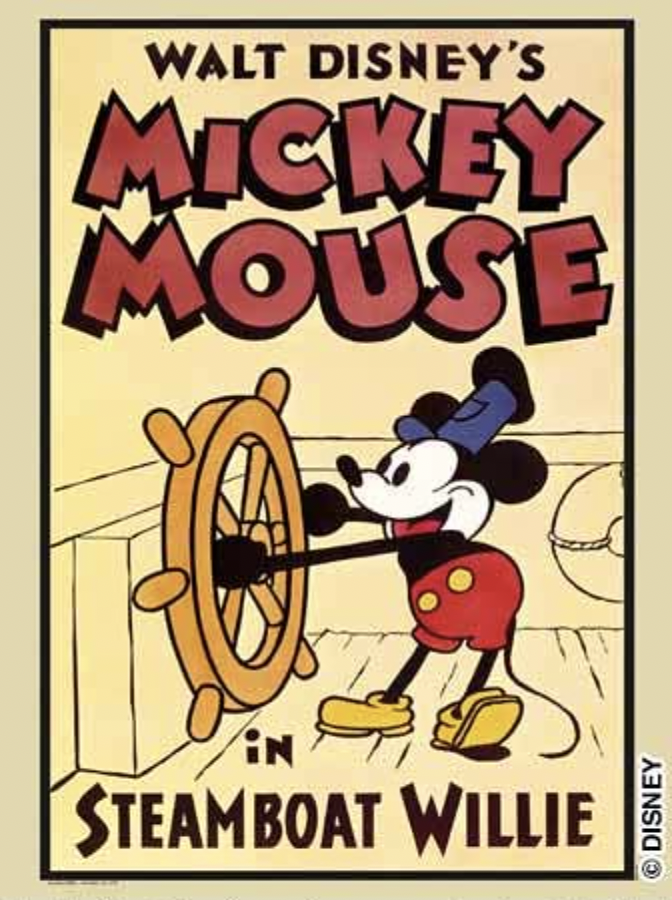Nov. 18th, 1928 marked the historic release of Walt Disney’s groundbreaking “Steamboat Willie,” introducing the world to the infamous Mickey Mouse character. This iconic mouse went on to become the face of the Walt Disney Company as well as one of the most recognizable figures of all time.
But, as of January 2024, Mickey Mouse is now available to the public domain. What does this even mean?
Public domain refers to creative materials that aren’t protected by intellectual property laws like trademark, copyright, or patent laws. No individual artist or author owns the work. In terms of Mickey Mouse, it means that anyone in the United States can use the Steamboat Willie version of the Mickey Mouse character without Disney trying to sue for copyright infringement. However, more recent iterations of Mickey, like Sorcerer Mickey from “Fantasia,” are still off limits.
This is a problem that Disney has been desperately trying to avoid for a long time. The company has lobbied the United States government to extend the copyright protection before its original expiration in 1984. In the past, they had been successful by getting lawmakers to change the law in 1976, allowing owners to retain copyright protections for the duration of the life of the author plus an additional 50 years. Disney was even able to delay it again in 1998, extending the expiration date to protect the character for anywhere from 70 to 95 years. But, they could only delay it for so long.
Quickly after Mickey went into the public domain there was an overflow of knock offs and parodies. A majority of these are horror-themed. Trailers have already been released for upcoming movies like “Mickey’s Mouse Trap” featuring Mickey as a murderous mouse going on a killing spree. There have even been video games released like “Infestation 88,” a co-op survival horror game that sets players against a demonic and deformed Steamboat Willie Mickey Mouse.
The Walt Disney Company has since responded to this by commenting to the Associated Press (AP).
“We will, of course, continue to protect our rights in the more modern versions of Mickey Mouse and other works that remain subject to copyright,” the company said.
But, this isn’t the first time a famous Disney character has joined the public domain. Just last year, Winnie the Pooh became available to the public domain. And just like fans have seen with Mickey, companies were eager to put a gruesome take on these beloved characters.
One in particular went viral, titled “Winnie the Pooh: Blood and Honey.” Although the movie did get released to theaters, it received mainly negative comments, only fueling popularity on social media. It currently stands at 3% on Rotten Tomatoes, but was able to gross over $5.2 million worldwide with a budget of $100,000. This only fueled the company to make more of these adaptations. They just announced an upcoming Pinnochio horror movie titled “Pinocchio: Unstrung.”
Pinnochio has actually been in the public domain since 1940, which is the reason Disney was able to make this classic and release it in the same year. So, although Disney isn’t too happy about their classics being remade, they’ve been taking advantage of the public domain since their very first movie, “Snow White and the Seven Dwarfs.”












































